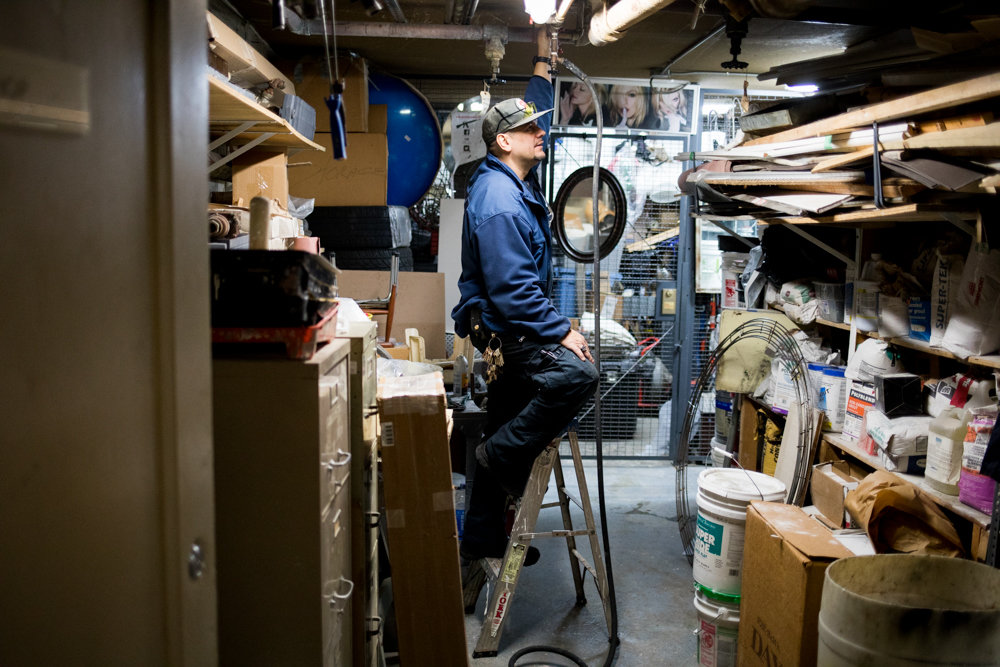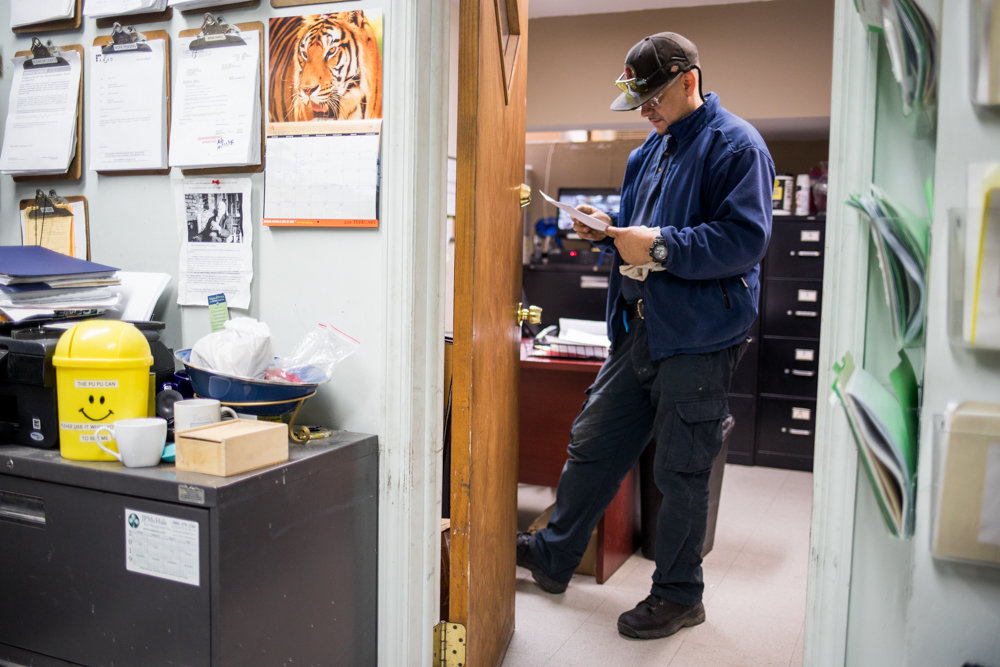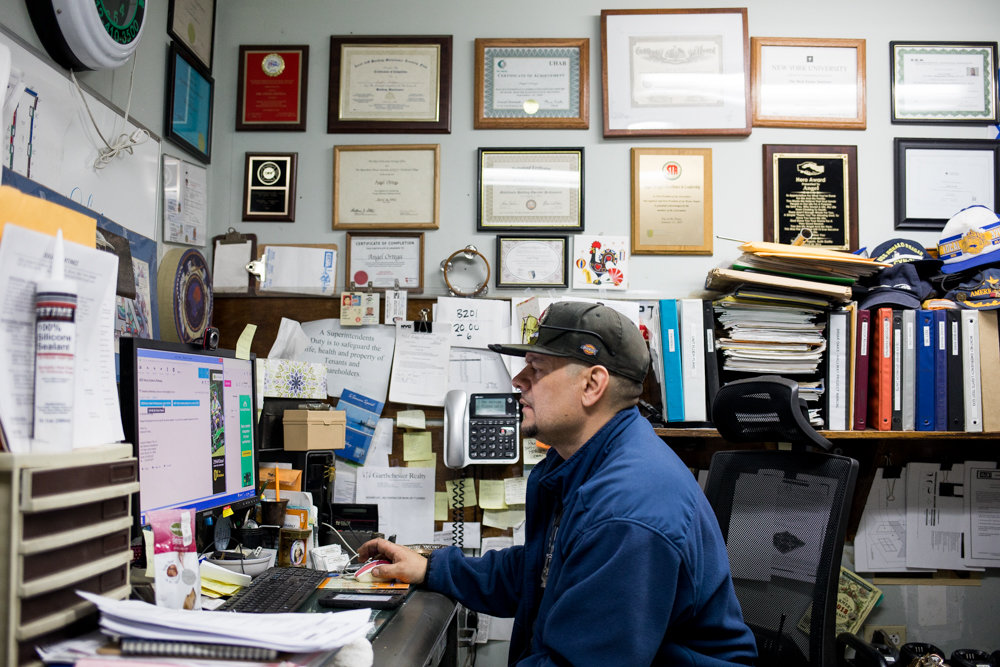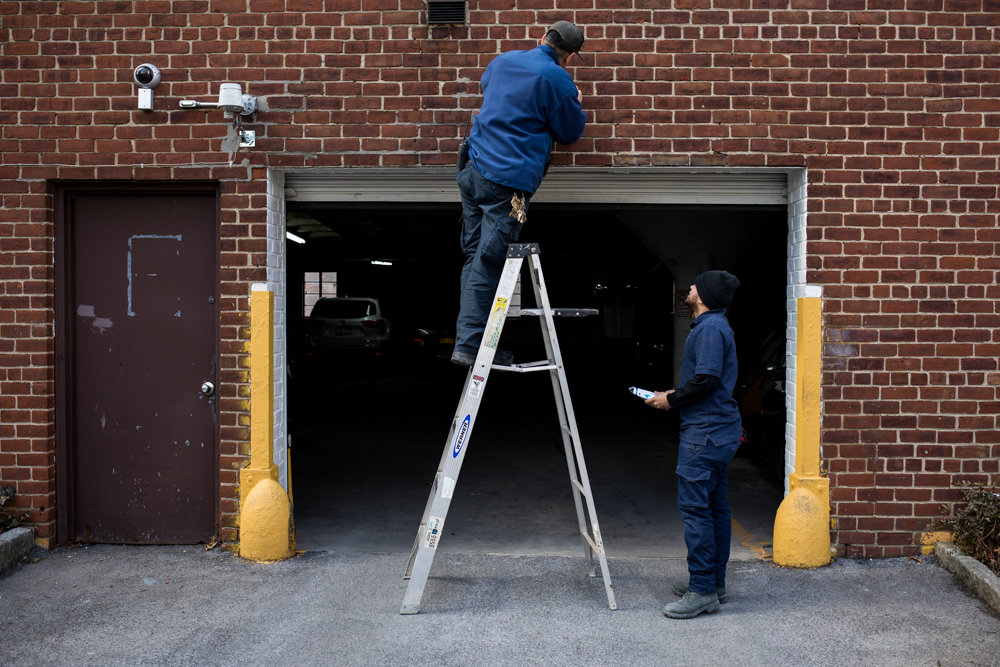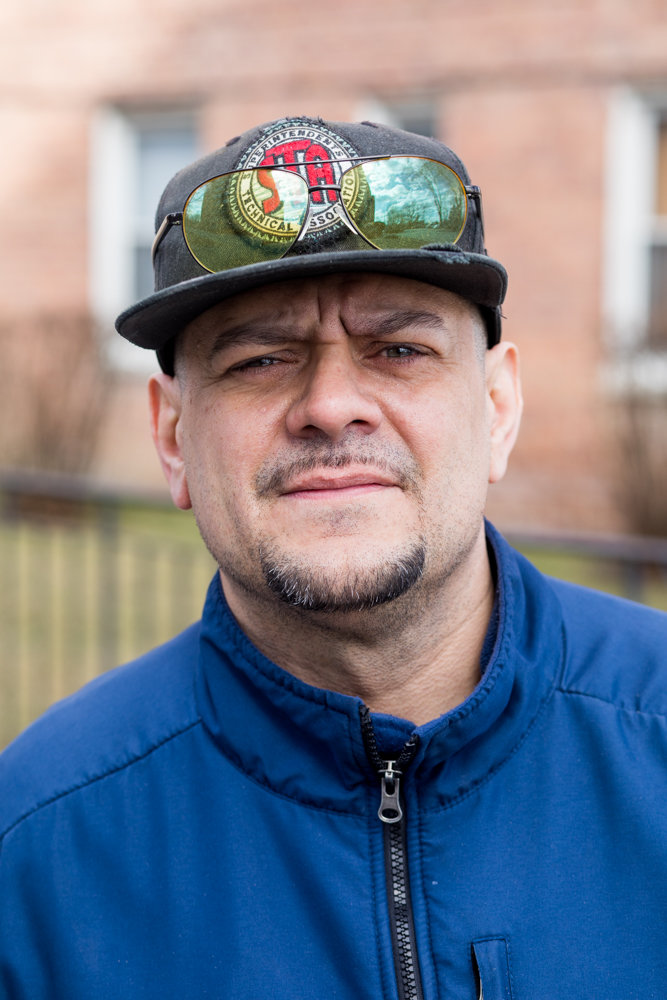Doormen, supers demand wage increase in new contract
Most days, Tracy Shuler drives from Brooklyn to Spuyten Duyvil, where he pours soul and strength into his job as a doorman greeting those who come home to 2465 Palisade Ave.
It’s a job he’s held for close to a decade. But Shuler believes he deserves more money for his work, and it would seem quite a few of those who live in Shuler’s building — and thousands of other residential workers throughout the borough — would agree.
Shuler often finds himself cranking out the jobs of two people, as he tells it, not just saying hello or farewell to residents, holding the door for them and helping with deliveries and packages, but also shoveling snow, assisting the superintendent with heavy lifting, or fixing issues in apartments.
“I do quite a few things,” Shuler said. It probably wouldn’t be a stretch to consider him a jack-of-all-trades of sorts. “When I applied for this job, I applied (to be a) doorman. I’ve been asking for a raise for a long time.”
His last raise was just a dollar, he said. And that was a few years ago.
But now things could change. The contract covering 3,000 doormen, handymen, porters and superintendents who toil in apartment buildings across the Bronx is set to expire March 14, according to their union, 32BJ, a division of the Service Employees International Union. They began bargaining earlier this month with the Bronx Realty Advisory Board, a multi-employer association that serves the real estate industry.
With the clock ticking, workers seek fair wage increases, just minimum rates for new hires, and maintenance of health and pension benefits.
Although negotiations are expected to continue until a new contract is agreed upon or the current one expires, a strike remains a possibility, according to 32BJ SEIU spokeswoman Amity Paye.
The workers, who staff more than 1,000 buildings in the borough, are like family to thousands of residents, according to their union. But amid the Bronx’s “thriving” real estate market — upward of $3 billion spent annually — business booms for landlords renting out units to a population that’s grown more than 25 percent in the last quarter century.
Residential prices, meanwhile, passed their pre-recession peak for the first time in Summer 2017, according to 32BJ SEIU. Yet, building service workers often find themselves struggling to keep up with rising costs of living — both in the Bronx and citywide.
“We’re not greedy. We’re just asking for fair wages and a small piece of that Bronx real estate boom,” said Tony Ahmeti, a Riverdale handyman and member of 32BJ SEIU’s bargaining committee.
Every four years, the workers bargain a new contract with their employers, Paye said, where they negotiate wages and a range of benefits. But if negotiations fail and the contract runs out, workers could vote to strike.
SEIU’s 32BJ is the largest property services union in the country, Paye said, and the Bronx workers negotiate separately from other boroughs like Manhattan because of how different the two economies are. The Manhattan union actually authorized a strike last year over demands to maintain their health insurance benefits, but it was averted when their employers allowed them to keep the benefits.
“Honestly, I think that we can expect something similar in the Bronx, where they may push back on health insurance or people’s pensions that they’ve had for decades at this point,” Paye said. “When you go to the bargaining table, people often think that they’re going to bargain for the world and they’re going to gain all these extra benefits. But really, this year, the team in the Bronx has said that they’re just committed to maintaining the benefits and getting cost of living wage increases to make sure that folks can take care of their families.”
The realty advisory board declined to comment.
While not all Bronx residential workers are 32BJ members, the outcome of the negotiations between the union and the realty advisory board still affects them, Paye said.
“It sets industry standards,” she said, because if a majority of residential workers in the borough are earning a certain amount of money, “there becomes sort of an expectation that that is how much the industry pays, even if you’re not a member of the union.”
And setting that standard is extremely important to people like Angel Ortega, who describes himself as the supervisor or working super for some 15 residential workers tasked with maintaining the 300 units that make up the Briar Oaks apartments on Henry Hudson Parkway. That workload could include dealing with garbage, cleaning common areas, snow removal, painting, plastering and other maintenance duties.
Ortega would “love” to see his wages go up and his full health benefits maintained, so that he can keep not just himself, but also the three kids he’s still raising healthy.
“Those are the biggest things, fair wage increase and health care,” Ortega said. “That’s been the case for the last 15 years, and that’s true for everybody throughout the city. I would say it’s one of the most important things — to maintain a good life, a good living, and not be worried about insurance and health care.”

